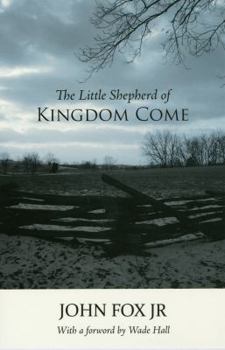Little Shepherd of Kingdom Come-Pa
Select Format
Select Condition 
Book Overview
When John Fox Jr. wrote The Little Shepherd of Kingdom Come, only thirty-five years after the Civil War, thousands of blue and gray veterans were still living in Kentucky and partisan feelings remained strong. The novel, indeed, portrays Kentucky as a state divided within itself and as the emblem of a divided nation; here is truly one of the most incisive novels of the Civil War. Chad Buford, an orphan from the Cumberland Mountains, is befriended by the aristocratic Major Calvin Buford of the Bluegrass, and begins a new life as "Chadwick Buford, Gentleman," but the Civil War intervenes, and Chad, like many other Kentuckians, faces a moral dilemma. Concluding that he is "First, last and all the time, simply American," Chad casts his lot with the Union. But The Little Shepherd of Kingdom Come is more than the moving story of a Kentucky mountain boy who fights to save the Union. Even the Civil War itself is but an epic stage for the novel's main business-the testing and maturation of a hero as American as Huck Finn or Tom Sawyer. An immediate bestseller when it was published in 1903, The Little Shepherd of Kingdom Come has maintained its perennial appeal through numerous editions, a successful stage adaptation, a silent movie, and a 1961 family film that stressed its Civil War love story.





